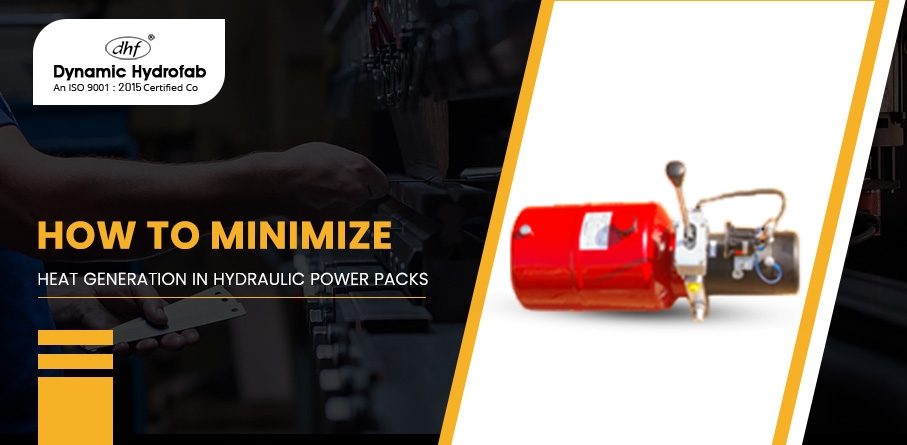How to Minimize Heat Generation in Hydraulic Power Packs

Efficient temperature management is essential to ensure the longevity and reliability of hydraulic power packs, preventing costly breakdowns and operational inefficiencies. Without proper heat dissipation measures, excess thermal energy accumulates, leading to a rapid rise in oil temperature and potential system failure. The problem of oil overheating can occur in any type of Hydraulic Power Pack– stationary or mobile. In this case, a critical increase in the temperature of the working fluid leads to equipment failure, and as a consequence – production downtime and losses.
What Causes Oil Overheating in Hydraulic Power Packs?
Heating of the working fluid in the Hydraulic Power Unit is caused by energy losses, which results in the release of a large amount of heat. Each hydraulic power pack has a thermal power. This is the ability to dissipate the heat generated during operation. If the total energy losses from all components of the system: pump, actuators, pipes and valves exceed the thermal power value, or the amount of heat dissipated, the oil overheats.
What is the danger of overheating?
If the hydraulic oil reaches a temperature exceeding 80 0 C, most of the structure of the sealing elements is damaged, and the characteristics of the materials from which the seals are made are reduced at a faster rate. In this case, even if the recommendations for preventing the system from operating at temperatures above 80 degrees are followed, the viscosity of the oil may be lower than necessary.
Dynamic Hydrofab manufactures hydraulic components with high-quality materials that withstand extreme temperatures and reduce the risks associated with overheating.
How to Maintain Optimal Temperature and Minimize Heat Generation
In order for the working fluid temperature to remain stable, the hydraulic power pack must have the ability to dissipate heat. Moreover, this ability must exceed the energy losses occurring within the hydraulic power pack.
For example, for a system with a continuous power consumption of 100 kW and an efficiency value of 80%, the heat dissipation capacity must be no less than 20 kW. It should be noted that when the thermal power increases or when the ability of the hydraulic power pack to dissipate heat decreases, the balance between dissipation and thermal power changes. Dynamic Hydrofab provides innovative cooling solutions that enhance the heat dissipation capacity of hydraulic power packs, ensuring stable Hydraulic Power Pack Performance.
Visit Us for More Information:- https://www.dhf.in/blog/how-to-minimize-heat-generation-in-hydraulic-power-packs
- Questions and Answers
- Opinion
- Motivational and Inspiring Story
- Technology
- Live and Let live
- Focus
- Geopolitics
- Military-Arms/Equipment
- Безопасность
- Economy
- Beasts of Nations
- Machine Tools-The “Mother Industry”
- Art
- Causes
- Crafts
- Dance
- Drinks
- Film/Movie
- Fitness
- Food
- Игры
- Gardening
- Health
- Главная
- Literature
- Music
- Networking
- Другое
- Party
- Religion
- Shopping
- Sports
- Theater
- Health and Wellness
- News
- Culture

